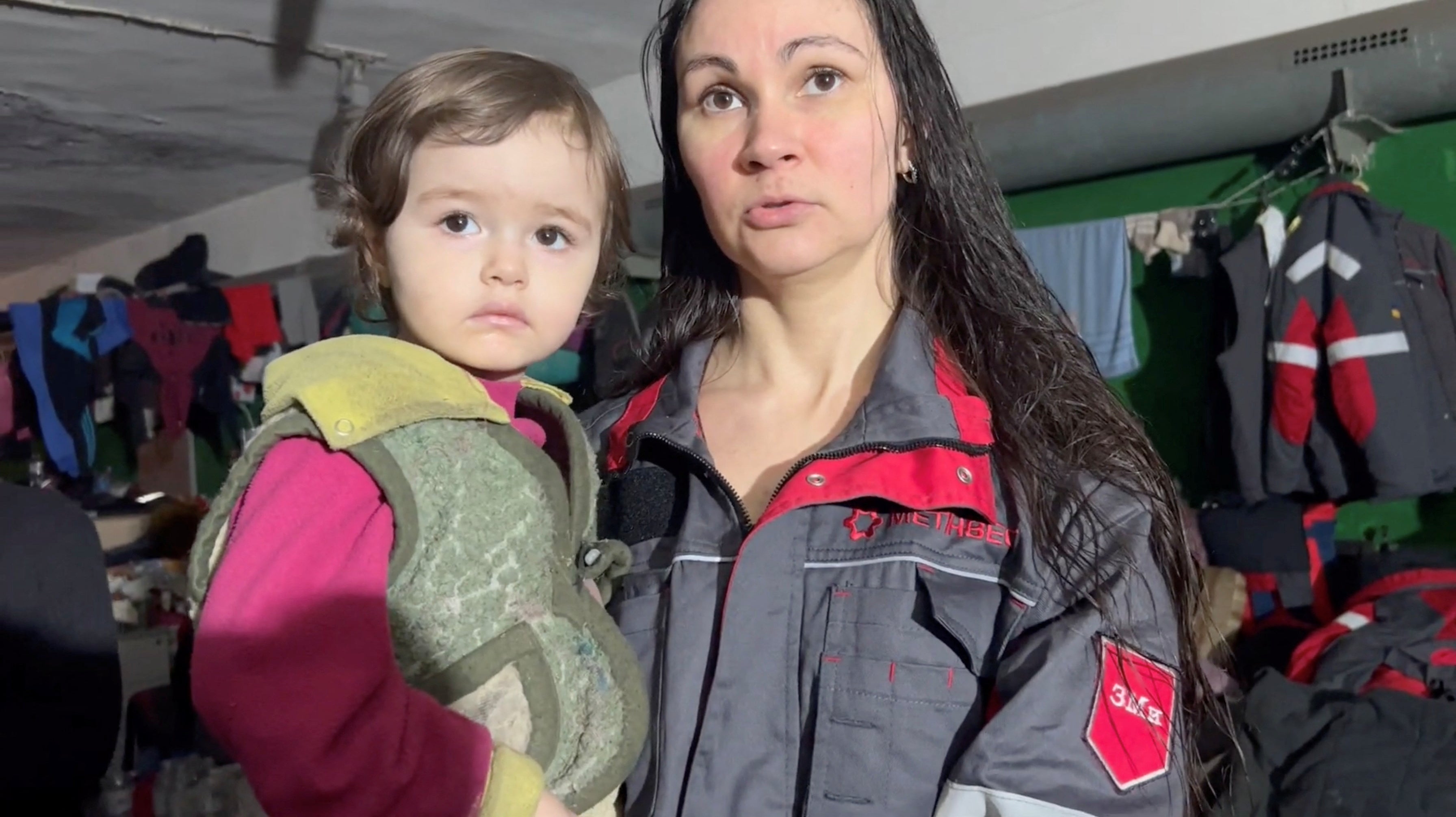Russia attacks Mariupol steel plant days after Putin ordered troops not to storm it, says Ukraine
Thousands of Ukrainian soldiers and civilians are sheltering in the besieged Azovstal steelworks
Your support helps us to tell the story
From reproductive rights to climate change to Big Tech, The Independent is on the ground when the story is developing. Whether it's investigating the financials of Elon Musk's pro-Trump PAC or producing our latest documentary, 'The A Word', which shines a light on the American women fighting for reproductive rights, we know how important it is to parse out the facts from the messaging.
At such a critical moment in US history, we need reporters on the ground. Your donation allows us to keep sending journalists to speak to both sides of the story.
The Independent is trusted by Americans across the entire political spectrum. And unlike many other quality news outlets, we choose not to lock Americans out of our reporting and analysis with paywalls. We believe quality journalism should be available to everyone, paid for by those who can afford it.
Your support makes all the difference.Russian troops have attacked the Azovstal steel plant in Mariupol just two days after President Vladimir Putin ordered his generals not to storm it, Ukraine has said.
Oleksiy Arestovich, an adviser to Ukraine’s president Volodymyr Zelensky, said on Saturday that the Kremlin’s soldiers were laying siege to the steelworks, Ukraine’s last stronghold in the city, where thousands of Ukrainian soldiers and civilians are holed up.
“The enemy is trying to completely suppress resistance of the defenders of Mariupol in the area of Azovstal,” he said.
His comments came days after Mr Putin told his defence minister Sergei Shoigu not to seize the steel plant in an all-out assault, but to rely on a blockade instead.
“Block off this industrial area so that a fly cannot not pass through,” the Russian president said. “There is no need to climb into these catacombs and crawl underground through these industrial facilities.”
In televised remarks on Thursday, Mr Putin also claimed that Russia had successfully “liberated” the city, most of which has largely been destroyed by Russian shelling over the past two months.
However, this notion was contested by Ukrainian troops in Azovstal, one of whom told the BBC earlier this week that “as long as we are here, Mariupol remains under control of Ukraine”.
The Azov regiment of Ukraine’s national guard, which has nationalist links, released footage of two dozen women and children who had reportedly been living underground in the steel plant’s tunnels for the past two months.

In the video which they said was shot on Thursday, soldiers are seen giving sweets to children, with one young girl saying she and her family “haven’t seen neither the sky, nor the sun” since they left home on 27 February.
“We want to see peaceful skies, we want to breathe in fresh air,” a woman said in the clip. “You have simply no idea what it means for us to simply eat, drink some sweetened tea. For us, it is already happiness.”
More than 1,000 civilians and roughly 2,000 Ukrainian troops are currently in Azovstal, according to Kyiv. Local officials have estimated that 100,000 residents remain in the city with extremely limited supplies of food and water.
Thousands of people in Mariupol are thought to have been killed over the past eight weeks, with new satellite photos appearing to show that mass graves have recently been dug in nearby towns. Ukrainian officials estimated that 9,000 bodies could have been buried there by Russian soldiers.
Shortly before the Ukrainian government’s announcement about the new attack on Azovstal, British military intelligence said “heavy fighting” was continuing in Mariupol.
“Despite their stated conquest of Mariupol, heavy fighting continues to take place frustrating Russian attempts to capture the city thus further slowing their desired progress in the Donbas,” the British Ministry of Defence said.
It added that Russia had not made any major gains in Ukraine over the past 24 hours. However, Serhiy Haidai, the governor of Luhansk region, said that Russian shelling had intensified in Ukrainian-controlled cities in the region.

Mariupol, a part of the industrial region in eastern Ukraine known as the Donbas, has been a key Russian objective since the invasion began on 24 February and has taken on outsized importance in the war. Completing its capture would give Russia its biggest victory yet, after a near two-month siege reduced much of the city to a smoking ruin and killed an estimated 20,000 people there.
Occupying Mariupol would deprive the Ukrainians of a vital port, free up Russian troops to fight elsewhere and allow Russia to create a land corridor with the Crimean Peninsula, which Moscow seized from Ukraine in 2014.
More than 100,000 people – down from a prewar population of about 430,000 – are believed trapped in Mariupol with little food, water or heat, according to Ukrainian authorities, who estimate that over 20,000 civilians have been killed in the city.
In his nightly video address, President Zelensky denounced all the war’s casualties, noting that the Easter holiday commemorates Christ’s resurrection after his death by crucifixion.
“We believe in the victory, of life over death,” he said. “No matter how fierce the battles are, there is no chance for death to defeat life. Everyone knows that. Every Christian knows that.”
He also warned that Russia would try to invade other countries in eastern Europe if its invasion of Ukraine succeeded.
Also on Saturday, President Zelensky spoke with British prime minister Boris Johnson about a “new phase” of military aid, including the provision of heavy weapons, the president’s deputy chief of staff Andriy Sybiga said.

Join our commenting forum
Join thought-provoking conversations, follow other Independent readers and see their replies
Comments